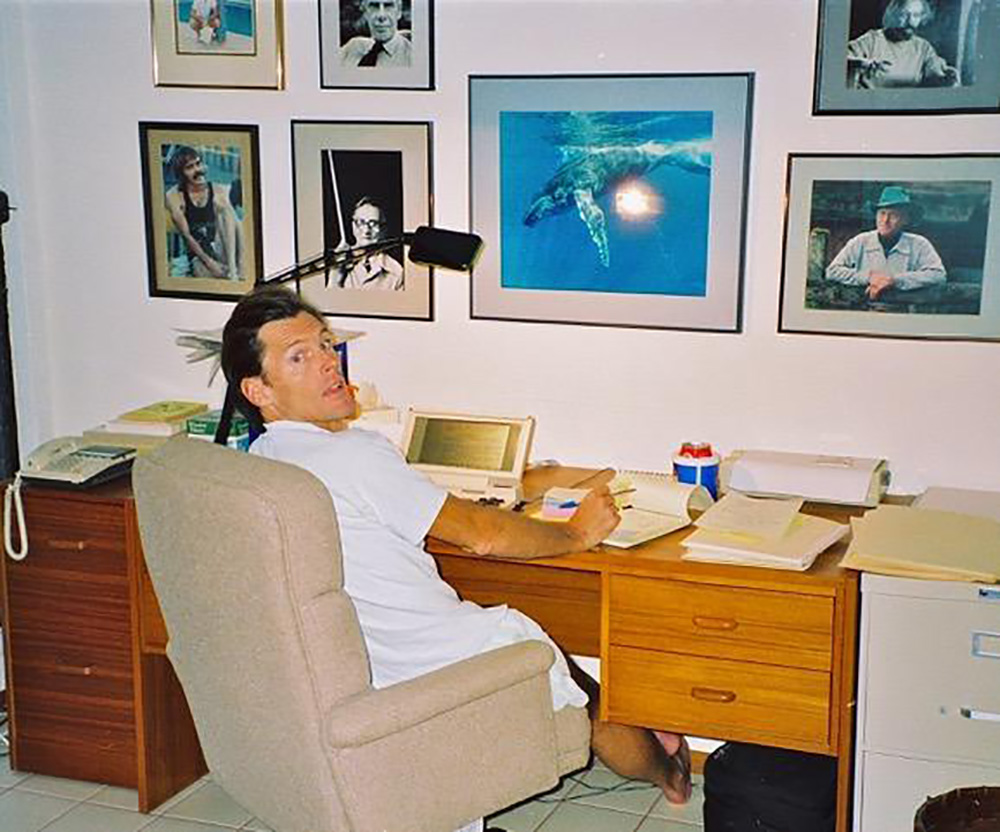
THE KENNY MOORE CREATIVE WRITING FELLOWSHIP ENDOWMENT FUND was recently established at the University of Oregon. Kenny was an athlete, a writer, a thinker, and humanitarian.
Moore was a two-time Olympic marathoner. He finished 14th in Mexico City in 1968 and 4th in the 1972 Munich Games. He was also a three-time All-American runner at Oregon and a member of the University’s Hall of Fame. Kenny was the 1967 USA Cross Country champion. After a long illness, he died May 4, 2022.
The University of Oregon Creative Writing Program is one of the elite and most selective programs of its kind in the country. Each year 10 students are selected from more than 600 applicants for the two-year masters level program. Kenny was a long-time generous supporter of the program.
The Endowment will provide financial assistance to the program’s students. It has been seeded with contributions of more than $100,000 with the goal of raising $1.5 million to create an endowment for the ongoing support of the program. Kenny enriched the lives of countless people. It seems most fitting to remember him through the university and program he loved.
Please consider honoring Kenny by providing educational support in perpetuity for creative writing MFA students by making a gift to the Kenny Moore Creative Writing Endowment Fund. You can make a tax-deductible gift with a check to: University of Oregon Foundation — Gift Services 1720 E. 13th Avenue, Suite 410 Eugene, OR 97403-2253. Please designate that the donation is for the Kenny Moore Fund. Or, you can make a gift online.
If you have questions about this fund or would like to discuss other ways to make a gift such as wire transfer, gifts of stocks or other securities, a pledge, or to include a gift in your estate; please contact Renee Gordon, Executive Director of Development.
More about Kenny Moore
Sports Illustrated was, many think, in its golden age when Kenny began a 25-year career with the magazine. It often featured longer literary pieces, a perfect home for Kenny’s profiles of people in sport, particularly track & field and distance running. Kenny, gentle by nature, saw others through a humane lens. He wrote beautifully and insightfully about people, not just their accomplishments.
After graduating from Oregon in 1966 with a degree in philosophy Kenny was awarded an NCAA post graduate scholarship and entered Stanford’s law school. Near the end of his first year, he was curious why he, one confident in his writing ability, didn’t receive a better grade on a paper. His professor told him that he could have done additional research, tightened his reasoning and on and on. Kenny protested that the short assignment didn’t call for all that. The professor launched into a canned speech about how if he wanted to be a lawyer, he needed to dedicate himself and not let anything stand in the way. Kenny walked out thinking the professor was right and nothing was going to stand in the way of his running and his writing. He left Stanford.
Returning to Eugene, Kenny enrolled in the Creative Writing program at the U of O. He received his Masters in Fine Arts in 1972 and his career as a journalist, screenwriter, actor and author was launched.
Screenwriting later found Kenny and he worked with celebrated writer Robert Towne on several projects, even somehow allowing himself to be cast in a couple of films. He co-wrote, with Towne, Without Limits, the movie about Steve Prefontaine’s life. But his seminal work was ahead of him.
Kenny had a handful of mentors. On the wall of his study were photos of a number of them. None more important than the man who helped form him as an athlete and a person, his college coach Bill Bowerman. Lessons Kenny learned were often wrapped in a Bowerman story. It was very important to him that the story of this remarkable man be written. Bowerman and the Men of Oregon is not just about the man but an important history of the state, the university and track & field.
Kenny became ill a number of years ago and was progressively limited. He had difficulty honoring the pledge he made to himself when he walked out of Stanford’s law school that nothing would get in the way of his running and writing, but his belief in the good of others, as well as his optimism in the face of inevitability, never wavered.
Thank you.
Jon Anderson (541) 521.4903 Terri Anderson (541) 521.4903
Kip Leonard (541) 221.5552 Jody Miller (541) 554.4485